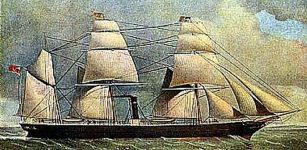On This Day In History: Chaldean Account Of The Deluge Translated And Presented For The First Time – On Dec 3, 1872
MessageToEagle.com – On December 3, 1872, a translation from Babylonian cuneiform tablets of the Chaldean account of the deluge was read by George Smith (1840 – 1876), English archaeologist and Assyriologist, before the Society of Biblical Archaeology in London.
This translation was bery similar to the biblical account of the Flood in Genesis, though older than the Bible. The document caused a sensation among the scholars.
Smith was particularly interested in cuneiform inscriptions. He spent much of his own time teaching himself how to decipher cuneiform, by studying inscriptions available at the British Museum.
His skill to translate the inscriptions was recognized, and from 1867, he began to work for the British Museum. In 1872, Smith had pieced together fragments of tablets brought from Nineveh (Kuyunjik) to the British Museum .
This is now known as the eleventh tablet of the Gilgamesh epic.
The next year, the Daily Telegraph newspaper, aware of its value as a media event, provided funding for Smith on behalf of the British Museum.
Smith was authorized to assume archaeological fieldwork at Nineveh to seek more tablet fragments of the flood story.
Smith began his fieldwork in 1873 at Nineveh, (modern-day Mosul, Iraq), one of the oldest and greatest cities in antiquity. The area of Nineveh was settled as early as 6000 BC.
Soon, Smith discovered many more tablet fragments of the flood story, and others on the Babylonian dynasties. He published his work in The Chaldean Account of Genesis (1876).
He died at age 36 of a fever while excavating more of Assurbanipal’s library.
MessageToEagle.com
Expand for references










